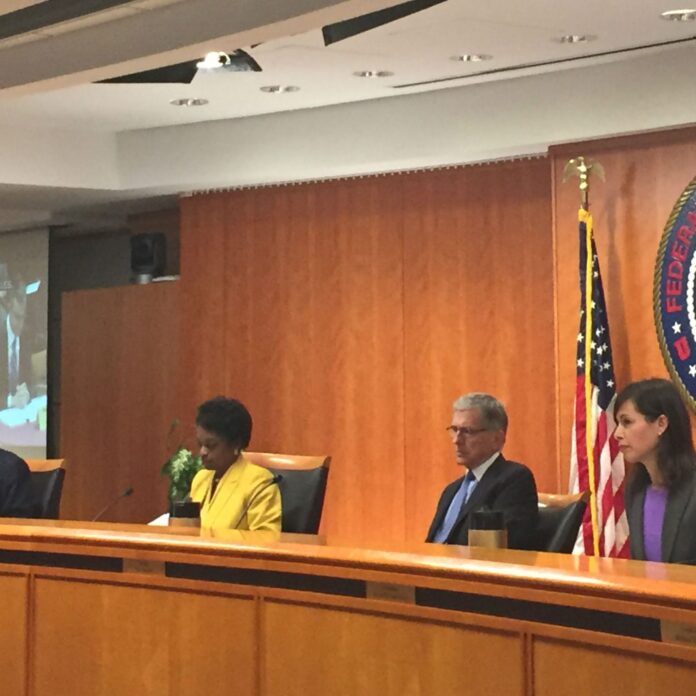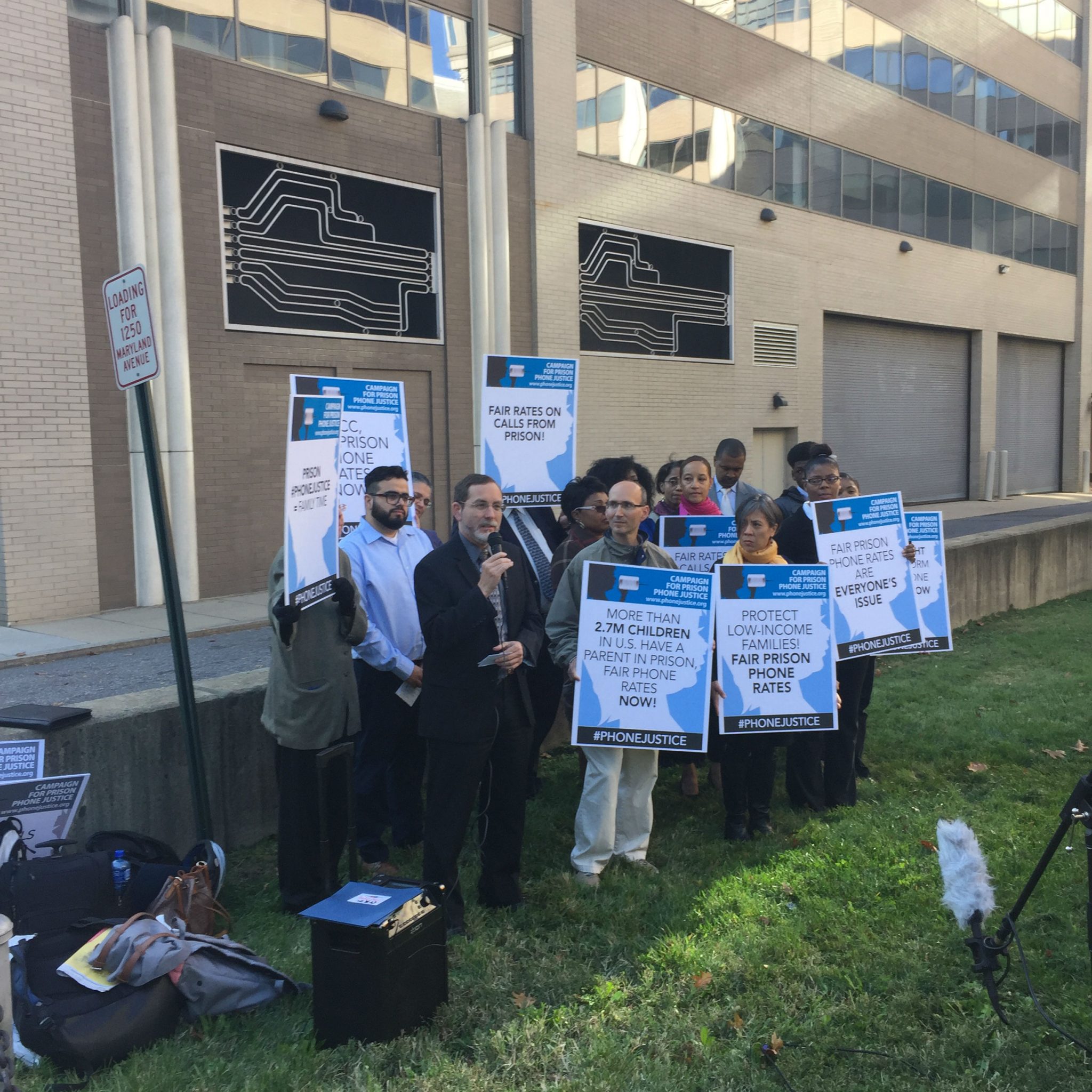Commissioner: ‘The race to 5G is on and this gets us out the gate’
WASHINGTON – At the Federal Communications Commission open meeting on Oct. 22, commissioners addressed a number of issues that have been circulating the Beltway policy shops including prison phone reform, foreign ownership of domestic broadcasting assets and high-band spectrum.
Prison phone reform
The issue of prison phone reform is seen as a piece of the larger effort toward criminal justice reform, which has become a major bipartisan issue. In a 3-2 decision with Commissioners Michael O’Rielly and Ajit Pai voting against, the FCC adopted new rates for prison calling reform, ending a more than decade-long effort to address the issue. Some calls from prisons and jails can cost up to $14 per minute based on the service provider; under the new rules, the maximum cost of a 15-minute local call is $1.65.
Commissioner Mignon Clyburn, who spoke passionately in favor of the move, pointed out the old system exploited inmates and their families. Under the new rules, calling rates will be 11-cents per minute in state and federal prisons and 14-cents per minute for jails with over 1,000 inmates.
Pai and O’Reily were against the move because they felt it over stepped the FCC’s authority. Commissioner Pai also raised the growing issue of contraband cellphones within America’s correctional institutions, which increasingly are being used to coordinate criminal activity outside of prison and even extort the loved ones of other inmates. Chairman Tom Wheeler, before calling the vote, said hopefully the new measure, in addition to helping inmates and their families, will help to reduce the demand for illicit cellphones within correctional institutions by making regular phone calls more affordable. Wheeler also explained during a press conference that the FCC is actively working to find solutions to the issue of contraband cellphones.
Advocates for reform of prison phone call pricing were outside the building supporting the cause.
Foreign ownership of broadcasters
The second item on the FCC agenda was the adoption of a Notice of Proposed Rule Making to streamline foreign ownership rules for broadcasters. Under the NPRM, the FCC would remove many of its outdated and opaque rules regarding the ownership of broadcasters.
The goal is to make those rules similar to the current common carrier rules. The commission noted the domestic broadcaster market has suffered from a lack of capital investment and that a vast number of publicly traded companies have a significant foreign capital. Under the proposed new rules, companies can request commission approval to 100% foreign ownership, allowing foreign investors to increase their interest to 100% without filing a new petition and allow non-controlling interest of 49.99% in the future without filing a new petition. The FCC was unanimous in adopting the NPRM with all commissioners speaking in favor of it.
Spectrum
The final issue the FCC considered was a NPRM for spectrum above 24 GHz. In the words of Commissioner Clyburn, “Flexible interoperable use of spectrum” could lay the regulatory foundation for next-generation mobile networks and expand an economy dependent on a vast “Internet of Things.”
Under the proposed rules, the FCC hopes to create flexible use service rules in the 28 GHz, 37 GHz, 39 GHz and the 64-71 GHz bands. The proposal also considers making spectrum use more flexible with licensed, unlicensed and shared approaches. The NPRM also seeks to provide a path for a variety of platforms to coexist, including the increased use of satellites.
Chairman Wheeler said under these rules the FCC would open 3,850 megahertz of spectrum, six times more spectrum than the commission has ever authorized.
FCC Commissioner Jessica Rosenworcel said, “The race to 5G is on and this gets us out the gate.”


